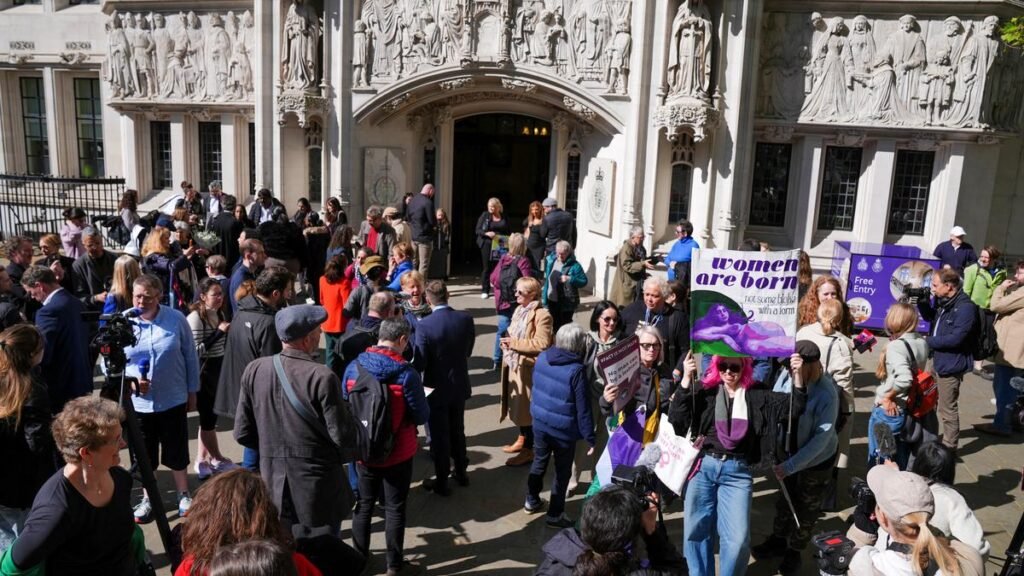London, April 2025: In a landmark ruling, the UK Supreme Court has clarified that the legal definition of “woman” under the Equality Act 2010 is grounded in biological sex, not gender identity. The judgment has sparked renewed debate over protected spaces and transgender rights in the UK.
The case was brought forward by women’s rights campaigners concerned that expanding the interpretation of “woman” to include individuals who identify as female but are biologically male could undermine sex-based protections designed for women under the law.
Supreme Court’s Clarification
In its official statement, the Court emphasized the binary nature of sex as outlined in the Equality Act, stating:
“The definition of sex in the Equality Act 2010 makes clear that the concept of sex is binary—a person is either a woman or a man. Those who share this protected characteristic do so on the basis of being of the same sex.”
Although the Act does not explicitly use the term “biological,” the Court concluded that the plain and ordinary meaning of the language clearly corresponds to biological differences, which are generally understood and require no further elaboration.
Implications of the Ruling
The ruling means that provisions referring to protections for women exclude individuals biologically classified as male, regardless of their gender identity. This legal clarification is seen as a victory for groups advocating to preserve women-only spaces, such as shelters, prisons, and sports, which they argue are at risk of being compromised by broader definitions of gender.
Campaigners Respond
Supporters of the judgment hailed it as a necessary reaffirmation of women’s rights under UK law, particularly amid growing tensions around the potential misuse of transgender protections.
Campaigners had argued that self-identification policies which allow individuals to change their gender on legal documents without medical transition were being exploited and could put vulnerable women at risk in spaces originally designed to ensure safety and privacy.
While the ruling brings clarity to the legal framework of sex-based rights, it also places renewed pressure on policymakers to strike a balance between gender identity recognition and the preservation of sex-based protections. Advocacy groups on both sides of the debate are now calling for more robust guidance on how institutions should implement the Equality Act going forward.
For more news subscribe to questeuro.com

More Stories
Tragedy in the Mediterranean: Two Children and One Adult Perish in Crossing from Libya to Italy
CPJ Urges Morocco to Lift Media Restrictions in Western Sahara
Italian Scientist Likely Killed in Mistaken Identity Case in Colombia, Authorities Investigate